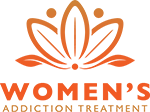Everyone’s addiction is unique. This means that everyone responds differently to addiction treatments. Today, a wide range of addiction therapy options are designed to help people find the best psychological support for their needs. Learning the difference between different addiction therapy services can help you and your loved ones find the right treatment plan.
If you or someone you love is struggling with addiction, know you are not alone. There are addiction therapy programs ready to treat substance use and addiction. Addiction treatment for women typically involve a combination of evidence-based therapies and holistic approaches. No method is better than another—it depends on what works best for you. Call a reputable treatment center to learn more about the benefits of addiction therapy programs.
Most Popular Addiction Therapy Options
Therapy is essential for addiction recovery. Addiction is often rooted in mental health issues like undiagnosed mood disorders or unprocessed trauma. Today, substance abuse treatment programs use evidence-based and alternative therapies to help clients get to the root cause of addiction and heal. Both residential and outpatient treatment programs provide clients with the necessary emotional and psychological treatment to help reduce the risk of relapse. Some of the most common addiction therapy services include:
- Dual diagnosis – This treatment assesses, diagnoses, and treats mental health disorders alongside addiction. Studies show that people with addiction are likely to struggle with mental health disorders. Clients experience fewer symptoms and a better understanding of their overall health and well-being by treating them together.
- Behavioral therapies – As the name suggests, behavioral therapies focus on a client’s behavior. Cognitive-behavioral therapy (CBT) and dialectical behavioral therapy (DBT) are the two most common behavioral therapies used in addiction treatment. They help clients change thought patterns, emotions, and harmful behaviors at a pace that works for them.
- Alternative therapies – Often combined with CBT and DBT, alternative therapies like art, music, dance, meditation, and yoga can help integrate behavioral changes, manage stress, and provide healthy activities for those in recovery. Many people find alternative therapy to offer long-term hobbies and deep healing.
These are only a few of the most common types of addiction therapy. Many programs also use EMDR and trauma-informed therapy to help clients resolve unprocessed trauma to reduce addiction triggers.
Common Addiction Therapy Services
Addiction treatment programs often provide individual, group, and family addiction therapy. By pairing individual and group therapy, clients can use tools from one-on-one sessions in group settings. They also connect with other people struggling with similar addiction stories. Family therapy can help improve communication, educate family members on mental health and addiction, and shift harmful family dynamics.
Other addiction therapy services like relapse prevention therapy, job skills training, and 12-step programs provide more resources outside of traditional addiction therapy sessions. The more service options a client has, the more likely they are to find the combination of therapies that helps them recover and thrive.
Put Sobriety First with Addiction Therapy Programs
Whether you or a loved one is struggling with mental health, substance abuse, or unprocessed trauma, addiction therapy can help. Unfortunately, many people don’t seek treatment for addiction and mental health disorders. Undiagnosed mood disorders can lead to substance abuse and addiction. Many people living with unprocessed trauma self-medicate and self-soothe with drugs or alcohol. Luckily, there are programs here in New Hampshire to help.
Learn More About Types of Addiction Therapy Today
Don’t let substance abuse take over your life. Whether you’re looking for residential or outpatient addiction therapy, there are substance abuse treatment programs for you. Check local and state addiction resources to find a reputable program near year, or call your insurance company today to learn more about programs covered through your health plan. Don’t wait. Seek treatment today.

